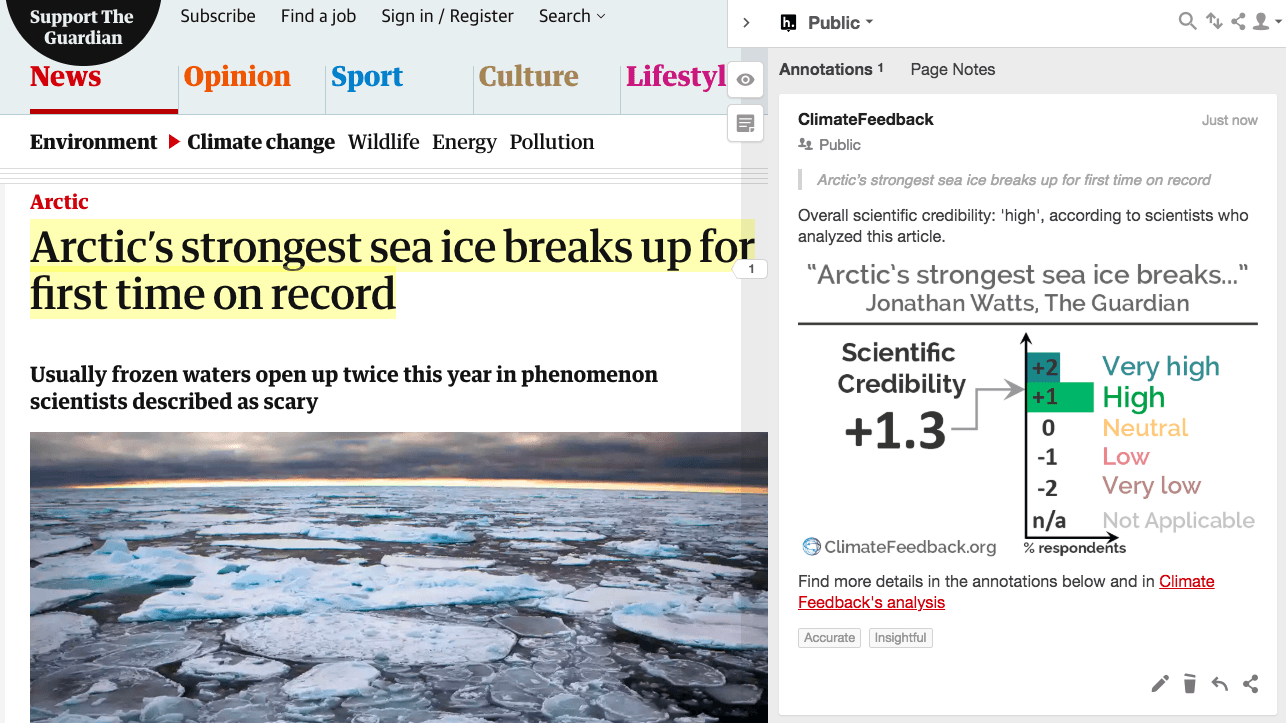
Guardian story accurately covers sea ice event but makes unsupported connection to weather patterns and the Gulf Stream
“The article is clear and accurate. The authors have consulted several experts in the field to develop this story. They provide a scientifically sound overview of the current sea ice state north of Greenland, its historical context, and what has caused this anomaly.”
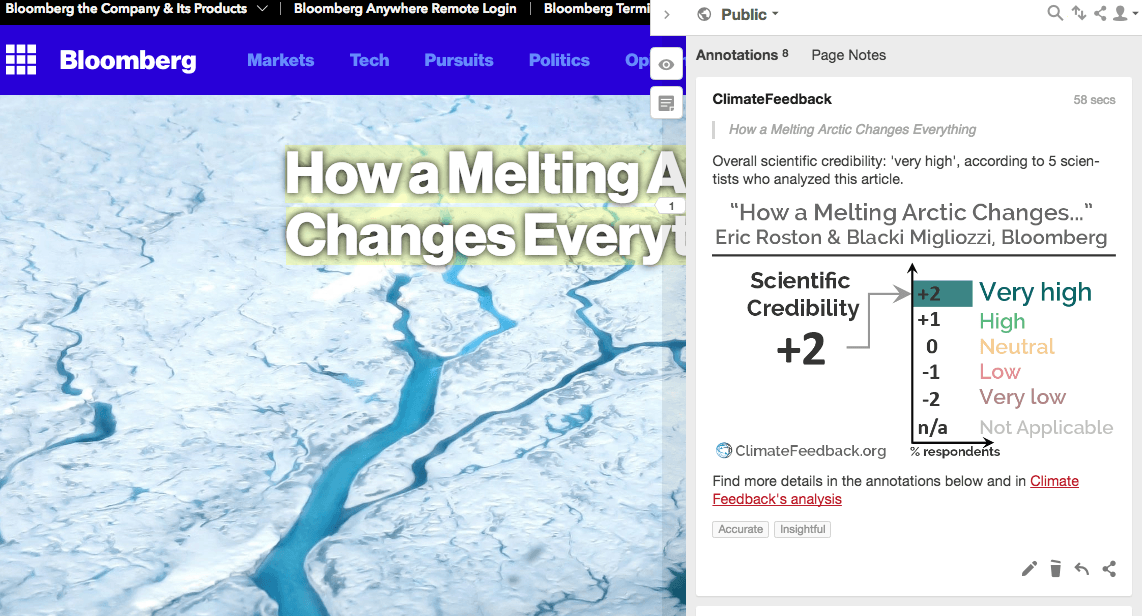
Insightful Bloomberg coverage on the rapidly changing Arctic: sea ice melt and permafrost thawing
Declining Arctic sea ice cover and thawing permafrost are both complex feedbacks that amplify global warming: The loss of reflective sea ice means more sunlight absorbed by the dark Arctic Ocean, while thawing permafrost can release greenhouse gases to the atmosphere.
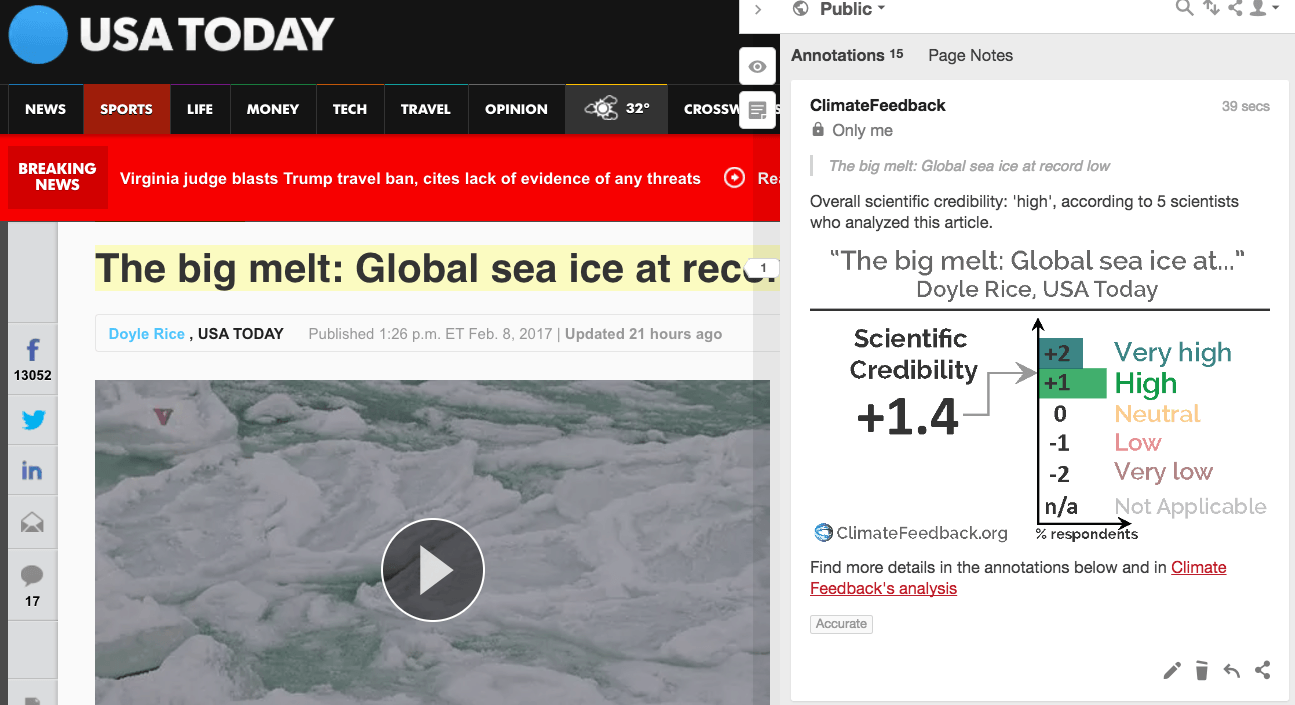
Analysis of "The big melt: Global sea ice at record low"
The five scientists who reviewed the article concluded that it is accurate. It properly conveys the core facts about global sea ice extent and the attribution of continuing sea ice loss to human-induced warming of the climate—primarily in the Arctic, as the low sea ice extent around Antarctica this year has not yet been clearly connected to climate change.
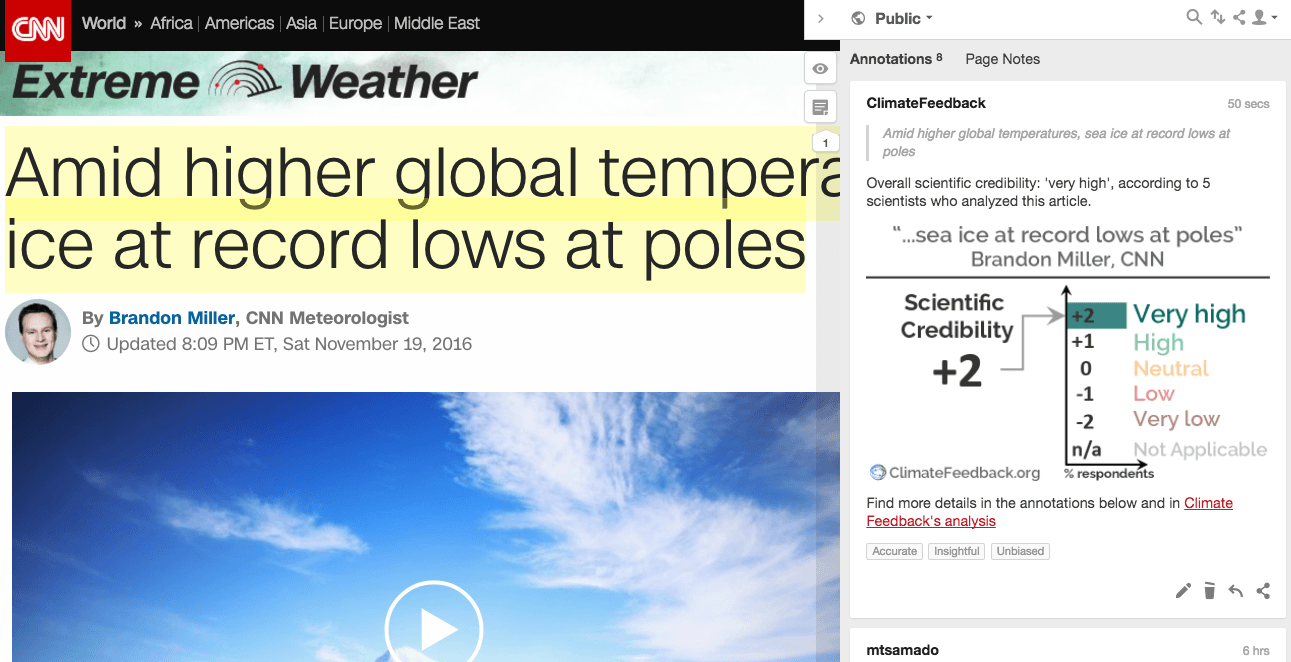
Analysis of "Amid higher global temperatures, sea ice at record lows at poles"
“Well outlined and balanced article, describing the evident link between low sea ice and climate warming and the melt-albedo feedback, but also mentioning the role of weather and short-time variability.”
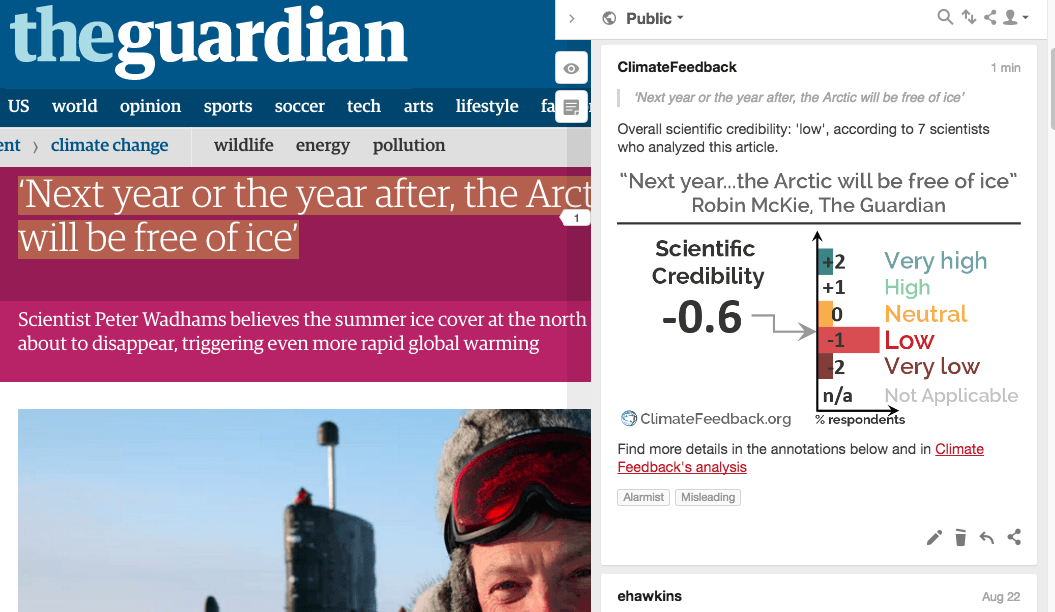
Analysis of "Next year or the year after, the Arctic will be free of ice"
“before propagating a marginal view, one should ensure having a very strong argumentation; in this interview no argumentation is put forward to support Peter Wadhams’ central claim. Wadhams’ alarmism is potentially harmful, because when such spectacular predictions are not realized some people may perceive the whole scientific community or science itself as untrustworthy.”

